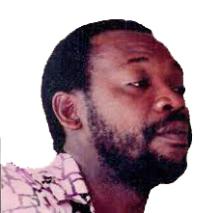Godwin Bowen pumped up Pamberi when he joined those talented San Juan panmen. Together, they brought new energy from the East, the way the late Earl Rodney and Solo Harmonites did decades earlier. Bowen’s arrangements gave Panorama a fresh vibe. His music was expansive and held huge promise. His melodies were emotionally charged and often nuanced. Pan lovers knew early he was a gifted arranger, and, later, composer.
Bowen came to Panorama with a bold spirit, a head full of ideas, and an ambitious arranging style. His forceful arrangements were unique, with an easily recognizable sound. He gave as much texture to his orchestrations as you find in symphonic music. When he wrote original tunes, they were explosive and disruptive.
He built new melodies inside his tunes, insisting on second and third movements in these compositions. Or so it seemed. Bowen’s dramatic introductions, confident bridges, and climatic endings thrilled audiences in the Savannah. He sometimes seemed to get lost in the complex moods of his tunes. Or, perhaps, it was his way of expanding the music he wanted Panorama to embrace. It is too late to pin down his motives, but all his Panorama pieces had panache and purpose. His passing in 2021 left the Steelband fraternity much poorer.
Bowen had an enviable community pedigree. His Point Fortin hometown produced music talents like Raf Robertson, Earl Rodney, Allan Gervais, Stalin, Super Blue, and Duke. That may be one reason Bowen was always raising dust, as he aptly named one of his compositions.
He was prescriptive about pan and Panorama. In 1996, he told the journalist Terry Joseph “Even though we have given the world all kinds of new music and hybrids of that music, we must conform to certain standards and not sit back and say that this pan music is so good that they bound to listen to it.”
He believed pan arrangers needed a community of their own. “…until arrangers talk to each other, we may never get to that level {world class). The only guy that I get to speak with is Jit Samaroo, who would pay some attention to other people’s work and come to discuss it. Many of the other arrangers behave like they have something that you do not have.”
Certainly, few of them had his imagination. Bowen added to Pamberi’s musical innovations incredibly rich original works: Steel on Wheels (1988), Posse (1989), Bun Down (1991), Panman Forever (1992), Raising Dust (1993), the Rite of Pan (1994), Ten Minutes of Glory (1995), Pilgrimage (1996). He wrote and arranged nine original pieces and seven took the band to the finals. Together, these compositions leave Pamberi a valuable legacy. “His arrangements were always high octane,” says Andre Moses, the band’s current leader.
Moses was part of the team that asked Bowen to join Pamberi for its first Panorama in 1983. Pamberi had been formed from a merger of Marsicans and Finland steel orchestras in 1980.
Its other accomplished arrangers have included Robert Bailey, Brian Villafana, Cheo Cato, Otello Mollineaux and, more recently, Andre White. In his first few years there, Bowen arranged tunes by Sparrow, Kitchener, Swallow, and Merchant. But after a discussion with Moses, Nestor Sullivan, and other Pamberi executives, Bowen agreed to compose original music for Panorama. He named all his compositions and also wrote all the lyrics. “In the 14 years Bowen was with us we had a close and rewarding relationship,” Moses says nostalgically.
To borrow a line from Mical Teja, Bowen’s DNA demanded he give his all to music. He was as prolific and passionate in other areas of music as he was composing. Before coming to Pamberi, he was a keyboardist with popular music bands and arranged for calypsonians. Bowen also worked on a project with bassist Ron Reid, and panists Len Boogsie Sharpe and Earl Brooks to fuse conventional instruments with pan, according to Moses. Music was his life and his love. It is evident in what he left us.

